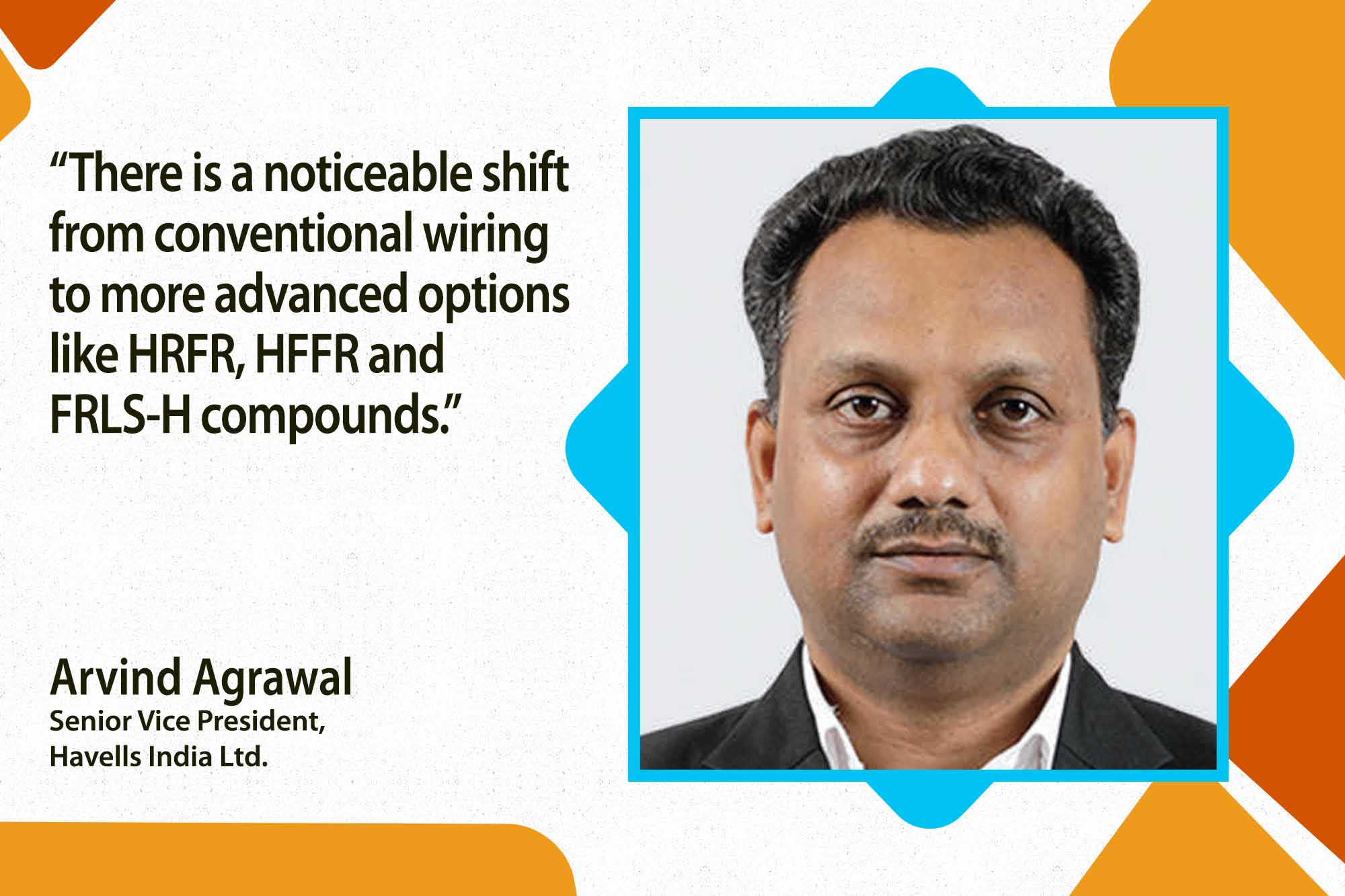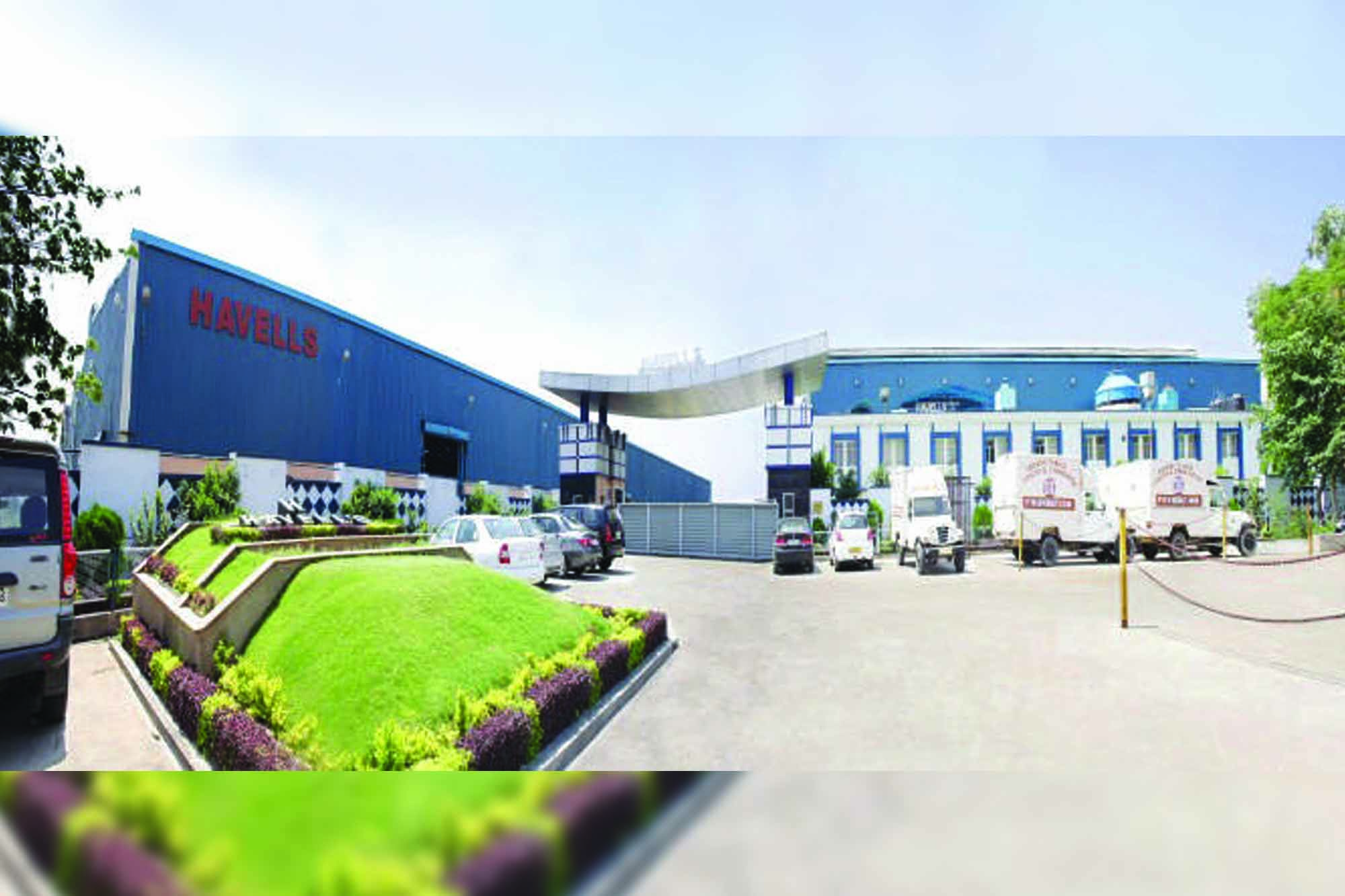Your choice of the right cable matters
By EPR Magazine Editorial January 23, 2024 11:50 am IST
By EPR Magazine Editorial January 23, 2024 11:50 am IST

There is a noticeable shift from conventional wiring to more advanced options like HRFR, HFFR and FRLS-H compounds.
As one of the world’s fastest-growing economies, India is undergoing a significant infrastructure transformation marked by advanced vertical building concepts and emerging technologies. The crucial role of electricity in driving this infrastructural and technological growth emphasises the importance of the quality of wires and cables. Consequently, the wire and cable industry is at a pivotal juncture, spurred by environmental concerns and a growing emphasis on safety.
Transition to safer cables
A noticeable shift is from conventional wiring with PVC insulation or sheathing materials to more advanced options like HRFR, HFFR (Halogen-Free Flame Retardant), and FRLS-H compounds. Commercial establishments like hotels, hospitals, malls, and luxury housing developers are increasingly adopting FRLS-H or HFFR cables. However, many contractors and builders lack awareness regarding the drawbacks of PVC-infused cables, despite recommendations from Indian electrical experts highlighting the safety and sustainability concerns associated with normal PVC wires. Efforts to educate the ecosystem on the benefits of HFFR as a superior solution from both environmental and electrical safety perspectives are imperative.
The choice of wire quality is often overlooked until replacement or repair becomes necessary. In 2019, a staggering 90 percent of fire accidents in India were attributed to electricity, with electrical short circuits being the primary cause. Short circuits and poor wiring, often stemming from low-quality insulation materials lacking flame retardancy, account for nearly 13 percent of accidental fires, leading to significant property damage and loss of life.
PVC cables containing chlorine increase the susceptibility of buildings to fire outbreaks. Burns and smoke, the predominant factors affecting individuals in electrical fire situations caused by PVC wires, pose severe health risks. PVC cables release harmful combustion gases and smoke, leading to acute and permanent harm to lung alveoli and numerous other health issues, including cancer. The absence of polyvinyl chloride in many electrical wires would likely prevent the emission of life-threatening gases and chemicals or curb the rapid spread of fires.

Sustainable HFFR cables
To address these concerns, Halogen-Free Flame Retardant (HFFR) insulated wires, approved by the Bureau of Indian Standards (BIS), offer a safer alternative. These cables do not emit hazardous gases and produce clear smoke, enhancing the safety of occupants during fire outbreaks and facilitating firefighting operations.
Globally, governments, industrial organisations, and professional bodies are implementing policies and initiatives to restrict the use of PVC cables. International standards advocate for using halogen-free cables in public dwellings, underscoring the need to shift away from PVC-insulated cables in favour of HFFR-insulated wires. In response, the cable industry, in collaboration with the Bureau of Indian Standards, has introduced a new standard, IS 17048:2018, for HFFR cables for voltages up to 1100 volts.
Embracing greener and safer alternatives, the Delhi metro has adopted halogen-free cables across stations. These cables have also found application in public spaces, including airports, university campuses, malls, and hospitals, signalling a positive shift toward safety and sustainability.
Recognising wires and cables as buildings ‘veins and arteries’, architects and real estate builders must prioritise safer and more sustainable options like HFFR cables. The impending change is a call for a safer and more secure future.
Spokesperson: Arvind Agrawal – Senior Vice President – Havells India Ltd.
We use cookies to personalize your experience. By continuing to visit this website you agree to our Terms & Conditions, Privacy Policy and Cookie Policy.